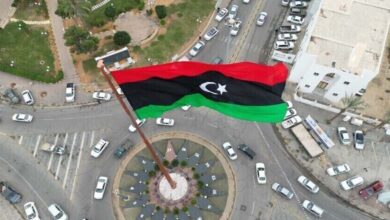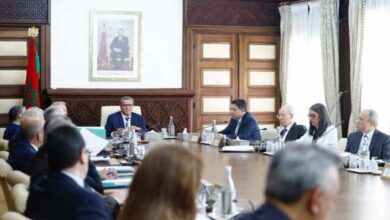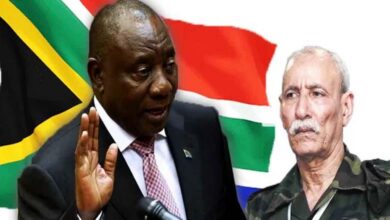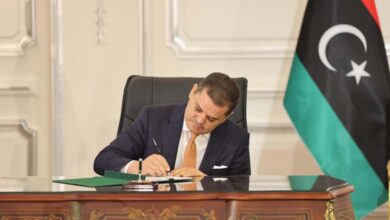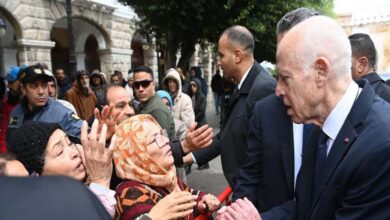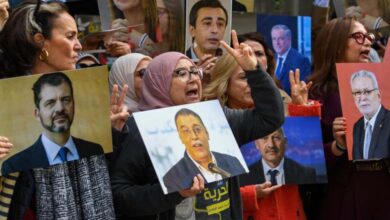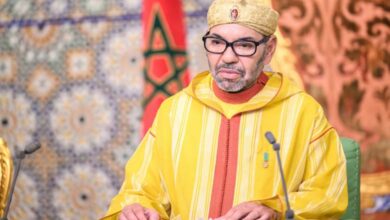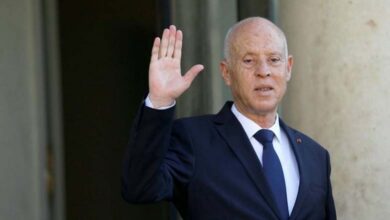44 Years of Chaos: Tunisia’s Muslim Brotherhood – From a Bloody Past to an Inevitable Downfall
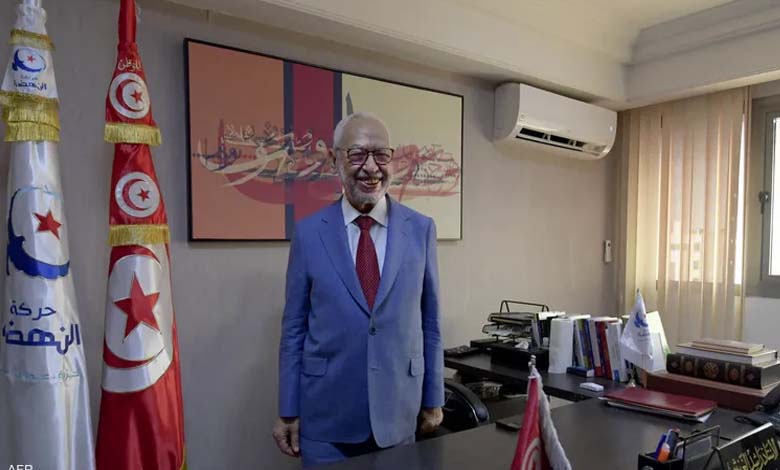
Today marks the 44th anniversary of the founding of the Ennahdha Movement, the political wing of the Muslim Brotherhood in Tunisia — an anniversary steeped in controversy, evoking a legacy of bloodshed, coups, and legal crackdowns. Since its official founding on June 6, 1981, the group has never strayed far from conspiracy against the state, resulting in repeated imprisonments of its leadership.
-
Rached Ghannouchi Rejects Remote Trial Appearance: Conspiracy 2 Case Shakes the Muslim Brotherhood in Tunisia
-
The “Black Room” Engulfs Tunisia’s Muslim Brotherhood… Judicial Decision against the “Leader” and Key Figures
-
As the election date approaches… Muslim Brotherhood in Tunisia intensifies efforts to disrupt
Ennahdha‘s trajectory has passed through several “explosive” phases. It began as a secret religious movement in 1969, launched by Ghannouchi, Mourou, and Nefir, before becoming a public political organization under the name “Islamic Tendency” in 1981. Soon after, it returned underground under state pressure. Key turning points followed in 1987, 1991, and even as recently as 2023 — each involving alleged coup attempts, bombings, and ties to terrorist networks.
-
Ghannouchi before the courts… Terrorism Surrounds the Head of the Brotherhood in Tunisia
-
Painful end for the Brotherhood in Tunisia… demands to dissolve Ennahdha movement after the arrest of Ghannouchi
The group’s founding leaders were imprisoned early on. Rached Ghannouchi and Abdelfattah Mourou were tried in the 1980s on terrorism charges. Yet with every political amnesty or settlement, the group would re-emerge, exploiting political openings to gain influence — culminating in its rise to power after 2011, during which, analysts argue, the state was treated as spoils of war.
-
Who is Noureddine Bhiri, the mastermind of the Muslim Brotherhood in Tunisia, accused in the travel case after being sentenced?
-
Saied is determined to eliminate the Muslim Brotherhood in Tunisia… Details
Today, as the Tunisian branch of the Brotherhood marks its founding, many of its leaders are behind bars. Movement president Rached Ghannouchi is imprisoned on charges related to terrorism and conspiracy against national security, alongside several other senior members. The group now faces internal fragmentation and popular collapse amid widespread rejection of its violent history and rhetoric seen as a threat to civil governance.
-
Tunisia Thwarts the Muslim Brotherhood’s Plans in International Justice
-
Conspiracy Deepens the Wounds of Tunisia’s Muslim Brotherhood: Leaders in Prison and Disillusioned Base
In a statement marking the occasion, Ennahdha attempted to defend its legitimacy, claiming that “there can be no true democracy without Islamists,” and that excluding them would not create a free state. These remarks were widely criticized and viewed as political blackmail — a sign that the movement’s mindset remains unchanged.
-
The Ennahdha Movement collapses… Crises hit the Muslim Brotherhood in Tunisia
-
Its effects are no less than bombing Palestinian hospitals… Saied speaks about the corruption of the Brotherhood in Tunisia
Political analyst Nabil El Ghouari said that Ennahdha’s history is “stained with blood,” noting that every rise has been followed by a fall caused by its own violence. He described their claim that politics cannot function without Islamists as “the dance of a slaughtered rooster,” affirming that the Tunisian people have dismissed the movement after seeing its true face.
-
After the failure of the Brotherhood in Tunisia.. Is Kais Saied ending the legacy of Ennahdha and its corruption?
-
Tunisia’s Muslim Brotherhood and the Takeover of Tribune: A New Compass for a Struggling Movement
Meanwhile, contemporary history professor Abdallah Chakhari stated — according to the same source — that Ennahdha was never born as a democratic party, but as an extension of the Muslim Brotherhood with a totalitarian vision. He noted that the movement targeted state institutions during the 1980s and 1990s, and later sought to infiltrate them after the revolution — not to govern justly, but to entrench itself in power.
-
The leaders of the Brotherhood in Tunisia before the judiciary.. The start of the investigations of “Deportation of Terrorist”
-
Reform without the Muslim Brotherhood: A Tunisian Politician Outlines the Path to Unity
-
Tunisia’s Muslim Brotherhood and the Poison of Discord in Gabès Protests They Once Ignored
-
Tunisia’s Muslim Brotherhood Pursues Internal Destabilization: What’s New?
-
Tunisia’s Muslim Brotherhood Entrenched in Rumors: A Blade Without an Edge
-
Conspiracy 2: Tunisian Judiciary Faces Deepest Muslim Brotherhood Plot to Infiltrate the State
-
Tunisia’s Muslim Brotherhood and the Recruited Fighters Case: Verdicts Close a Dark Chapter
-
A TV Report in Tunisia Keeps the Muslim Brotherhood in a “State of Emergency”
-
Tunisian President Attacks the Muslim Brotherhood: “Their Illusions Will Never Become Reality”


